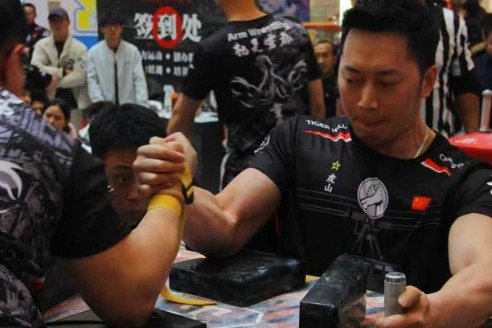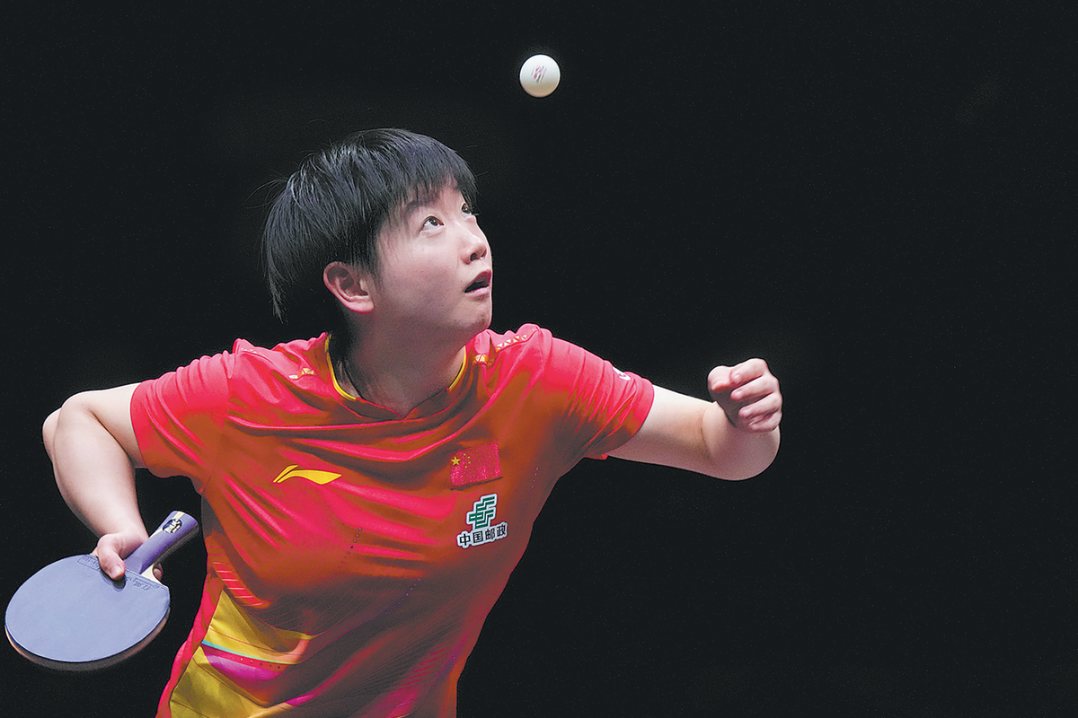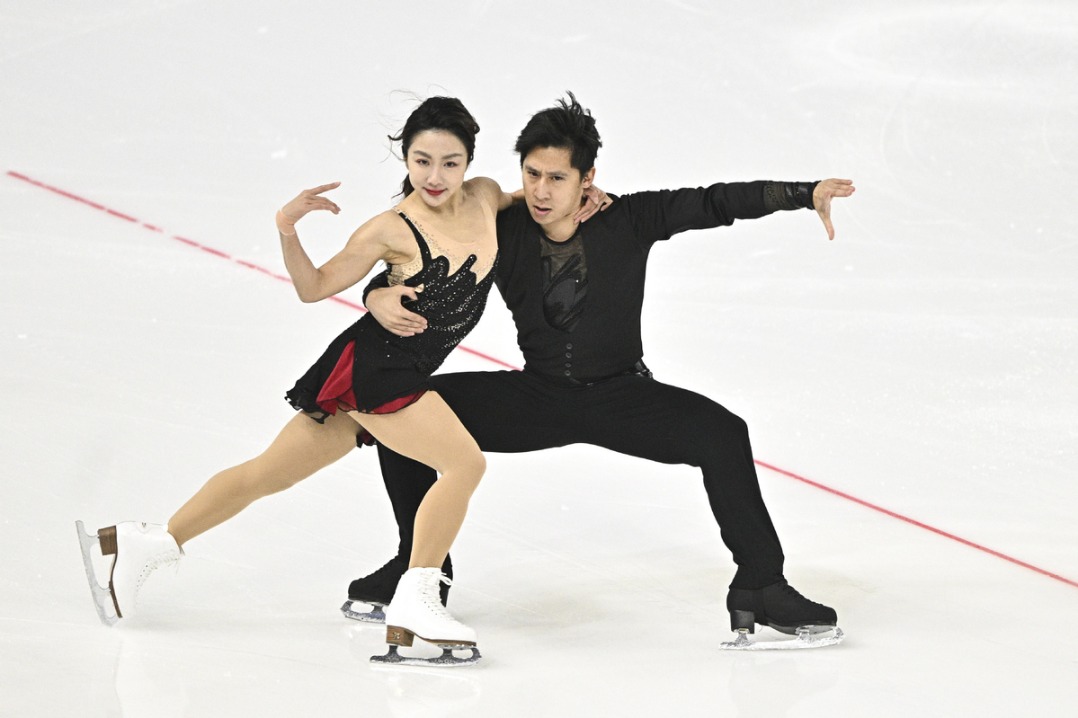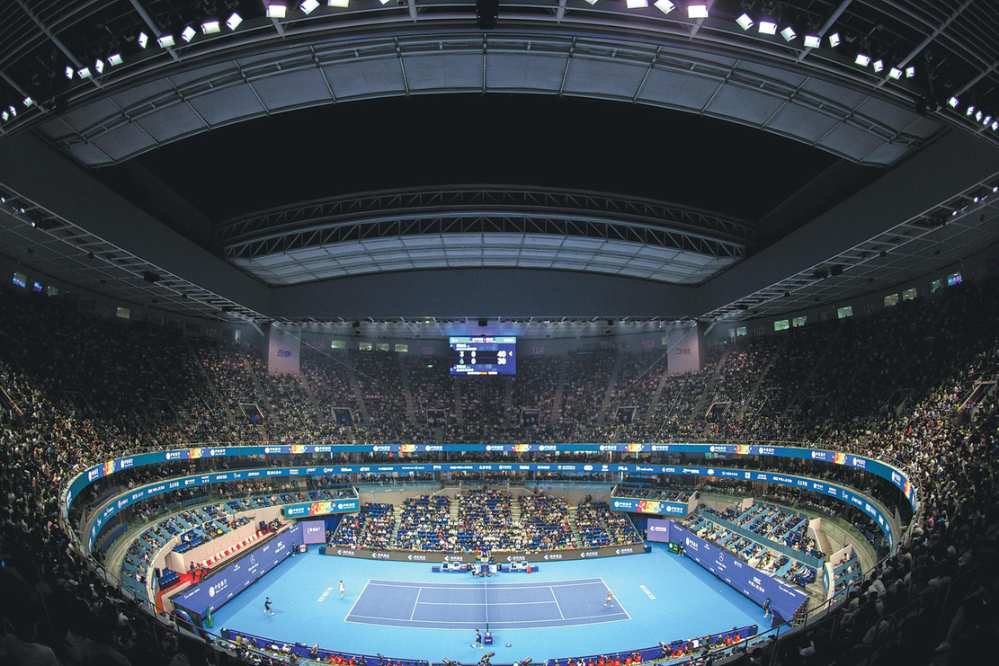Tapping into a deeper talent pool

National tourney exposes need for naturalized players to go to Olympics

Despite an embarrassing lack of talent on display at the recent national championships, the Chinese Ice Hockey Association remains upbeat that its talent cultivation program will reap dividends at the home Olympics in 2022.
Billed as Chinese hockey's highest-level domestic event, the national championships' six-team men's Group A tournament devolved into little more than a farce, with the slow progress in player development exposed by lopsided matches that underlined the need for the governing body to rethink its lofty ambition for the 2022 Winter Olympics.
Zhang Hao of Team Harbin (right) fights for the puck with two Team Qiqihar players during the Group A competition of the 2019 National Ice Hockey Championships at the Aozhong Ice Sports Center in Beijing last week. A 3-1 victory against Qiqihar crowned Harbin the national champion. Xinhua
Without enough players capable of competing in the top division, the June 1-5 tournament at Aozhong Ice Sports Center in northeastern Beijing included an extra team from the capital, consisting of several foreign-born players of Chinese ancestry.
It marked the first time China permitted athletes born overseas to take part in its domestic championships, reflecting a desperate move to bolster competitiveness in the Western-dominated sport with less than three years before the 2022 Games.
As host, China's men's and women's teams have qualified directly for the Olympic tournament.
Beijing's Team B, featuring three Chinese-Canadians led by defenseman Zach Yuen, finished third in the championships behind Harbin and Qiqihar, dominant teams from the winter sports powerhouse of Heilongjiang province in Northeast China.
"This is how we try to expand the talent search and the tournament's influence with an open mind," said Si Liang, deputy secretary general of CIHA.
"To make the championships competitive enough for a roundrobin tournament rather than just a two-team battle, we needed to open it up to overseas Chinese players on condition that they'd all acquired passports of the Chinese mainland, Hong Kong or Macao."
Yuen, a 26-year-old defenseman born to Chinese parents in Vancouver, became eligible to represent Beijing after gaining Hong Kong citizenship through his father's family roots.
"Obviously the local Chinese need to level up their game and gain more experience in order to be competitive internationally, even though they all have good talent," Yuen said in fluent Mandarin.
"After all, the future of hockey in China lies in the hands of the homegrown younger generation and we just hope to contribute our part to share as many experiences as possible with them."
Yuen emerged from a 2017 national Olympic tryout camp that was jointly organized by the CIHA and Kunlun Red Star, the country's lone entry in the Russia-based Kontinental Hockey League.
About 60 players of Chinese ancestry born in North America were selected for the 2022 development program with hopes of making some of them eligible for the Olympics by offering them Chinese passports at least two years ahead of the Games.
Progress in the naturalization program is in marked contrast to the stagnant domestic talent cultivation, as evidenced by some laughably lopsided matches at the national championships.
After at least eight players opted out to focus on their studies or recover from injuries, the team representing Chengde, Hebei province, in the Group A tournament was left with only six players - including 54-year-old goaltender Wu Fengming and 53-year-old youth team coach Li Min.
With the Chengde squad trailing Qiqihar 9-0 after just 20 minutes in their third-round game on June 3, it was mercifully called off.
Chengde, the bronze medal winner at the 2017 national championships, conceded 58 goals while scoring just six in its five games.
"This was a humiliation for both teams and the tournament as a whole," said Geng Hua, head coach of multiple national champion Qiqihar.
"This is supposed to be the highest-level tournament, but the lack of talent has made some of the matches meaningless."
China's ambition to contend for a medal on the women's side while performing respectably in the men's tournament at the 2022 Games increasingly seems an all but impossible mission, but the CIHA remains optimistic on improving its world No 20 women's team and 32nd-ranked men's squad in time for the Olympic challenge.
"We set the goal pretty high to motivate all parties, from either the State-run sports system or clubs outside of it, to work hard toward the same goal of raising the profile of hockey in China so we don't waste the golden opportunity brought by the Olympics," said Si.
"We believe the process will help us reach new levels in the sport, even if the Olympic results don't meet our expectations."
Most Popular
- Chongqing contest sets new records for Chinese arm wrestling
- China's national football team announces 26-man roster under new coach Shao
- Continued gains mask growing pains
- On top of their game
- China's sports science institute trumpets national fitness rise
- South Korea's An equals calendar year title record





























